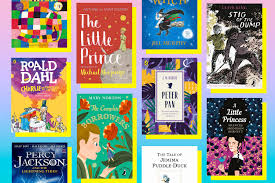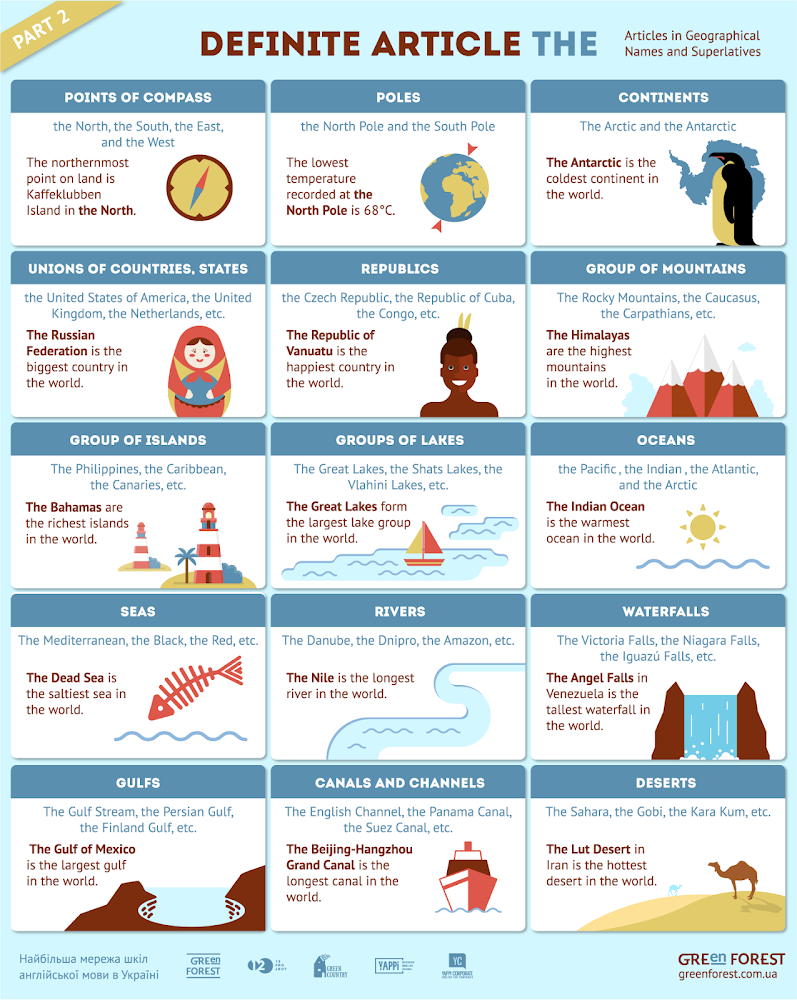8 form
The best way to improve your English is by using English, not studying English.
Welcome to our English blog! It presents a collection of educational resources which may be helpful in the study and preparation of English lessons in secondary schools.
Materials are published as they are created and are constantly updated.
(All posted resources are for non-commercial use.)
Unit 6
VERY TRADITIONAL BRITAIN
Watch the video
Top 10 Weirdest British Traditions
Watch the video
Top 10 superstitions
GRAMMAR
Sequence of Tenses
Unit 5
Britain and Belarus round the Calendar

Christmas traditions in Great Britain
Watch the video "Bonfire Night"
Grammar
Past Simple Passive
Unit 3
TRADITIONAL BRITISH FOOD
Watch the video "British food" and learn British dishes
Test yourself "British food"
Unit 3. Video lessons 1-9
Grammar
Learn more about the rule
Generally, we use no article before the name of meals (breakfast, lunch, and dinner).
I had lunch with Olivia.
My husband cooked scrambled eggs for breakfast.
But there are many exceptions. For example, include an article (“a”, “an”, or “the”) or another determiner (this, that, some, my, your, etc.) when using an adjective before the name of a meal, introducing a compound noun, or mentioning a special occasion.
We enjoyed a delicious dinner. (Adjective before the name of a meal)
I’m on my lunch break. (Compound noun that contains the name of a meal)
We went to a dinner celebrating our last night in Spain. (Special occasion)
1. When to Omit the Article a/the
We do not normally add the article “a” or “the” before the name of a main meal.
I had breakfast with my family.
We had lunch together yesterday.
Rebecca had dinner with Peter last night.
Follow the same strategy with other verbs, such as “eat”, “prepare”, “make”, “cook”, “enjoy”, etc.
John is making breakfast for the kids.
My wife and I ate lunch at noon with our friends.
I came back early to prepare dinner.
We often use the expressions “for breakfast”, “for lunch”, and “for dinner”.
I prepared pasta for lunch.
What’s for dinner?
You can use a possessive pronoun (my, your, etc.) or another determiner (this, some, most, etc.) to identify or quantify the meal.
I always start my breakfast with an orange juice.
This lunch is fantastic!
2. When to Use an Article
Before the name of a meal, we place an article (“a”, “an”, or “the”) or another determiner (my, your, this, that, some, etc.) in these situations:
- When the name of a meal is preceded by an adjective (e.g., “We had a delicious breakfast.”)
- When using a compound noun that includes the name of the meal (e.g., “We’re on our lunch break.”)
- To mention a special occasion (e.g., “We organized a dinner in honor of our daughter.”)
- To highlight the food that we ate during the meal (e.g., “The room was not great, but the breakfast was delicious.”)
More examples:
My wife prepared a simple and healthy lunch with salmon and potatoes. (Adjective before the name of a meal)
We enjoyed a romantic dinner in Paris. (Adjective before the name of a meal)
I usually take my lunch hour between noon and 01:30 p.m. (Compound noun that contains the name of a meal)
We need a great dinner idea. (Compound noun that contains the name of a meal)
All the family turned up for our aunt's birthday dinner. (Special occasion)
We held a benefit dinner to raise money for the foundation. (Special occasion)
Omit the article, however, to talk about meals in a general sense.
Formal dinners are usually meant for a significant number of people.
My girlfriend loves romantic dinners.
3. Have a Snack or Have Snack
We commonly use the indefinite article “a” or another determiner (“the”, “this”, “my”, “your”, etc.) before the word snack (a small amount of food that is typically eaten between meals).
I’d like to have a snack before dinner.
We could stop for a snack.
We had a huge lunch, so we'll only need a snack for dinner.
Does my snack need to be healthy?
Do "Containers Quiz"
Test yourself "Food containers"
Check yourself
Cooking verbs
Check yourself
Unit 4
MONEY
👇
Money Talks
Check your understanding of the rule👇
Unit 5
Britain and Belarus round the Calendar

Christmas traditions in Great Britain
Watch the video "Bonfire Night"
Grammar
Past Simple Passive
Unit 6
VERY TRADITIONAL BRITAIN
Watch the video
Top 10 Weirdest British Traditions
Watch the video
Top 10 superstitions
GRAMMAR
Sequence of Tenses
Unit 2
School is not only learning
Audio 8. Unit 2.
Lesson 1. Welcome to Hill Ridge School
Watch the video and get more information about boarding schools in Great Britain
Word formation. Suffixes -ant, -ent, -ance, -ence, ment.
Watch the video and learn the rule.
Lesson 2. School campus and facilities
Lesson 5. Join the club!
Check your knowledge in using the verb need.
Test yourself.
Lesson 6. Which club to choose?
Test yourself online in using Gerund and Infinitive
Unit 7
MUSIC IN YOUR LIFE
Read the text and do the tasks

Watch the video

Unit 8There`s No Life Without Books
Study the list of best novels to improve your English!
Best Novels to Improve English: Intermediate Level
The Great Gatsby- F. Scott Fitzgerald
“I was within and without, simultaneously enchanted and repelled by the inexhaustible variety of life.”
How can we not include The Great Gatsby on our list of the best novels to improve English? This novel is the perfect reflection of the beauty of words and the power that language possesses, hence making it next on our list of the best novels to improve English. It is a social commentary on the combined forces of triumph and tragedy, in the life of the protagonist, Jay Gatsby, a mysterious millionaire. His desperate attempt to rekindle his past romance with his former beloved Daisy Buchanan puts him on the path of crime and deceit. It is a great book to pick up a more enhanced style of reading and writing.
Harry Potter series- J.K Rowling
“It does not do well to dwell on dreams and forget to live.” ― Albus Dumbledore
Well, this one has to be on our list of best novels to improve English. You might be living under a rock if you haven’t heard of the Harry Potter series! J.K Rowling has created an incredible adventure of witchcraft and wizardry, culminating in the chronicles of life of an ordinary boy named Harry Potter, whose life turns upside down when he discovers the magical world of Hogwarts. The author uses many new words that can be incorporated into the reader’s daily vocabulary and provides a technique to learn a more advanced level of English for intermediate-level readers.
To Kill a Mockingbird- Harper Lee
“You never really understand a person until you consider things from his point of view… Until you climb inside of his skin and walk around in it.”
This classic American novel follows the grotesque issues of rape and the sad reality of racial inequality prevailing in society. The story advances through the eyes of two young children, whose lawyer father represents a black man accused of rape, so the language is not at all complex, and yet it is intensified with great vocabulary like ‘malevolent’, ‘assuaged’, etc, making it a great novel for readers looking to enhance their English language and diction.
Lord of the Flies – William Golding
“He found himself understanding the wearisomeness of this life, where every path was an improvisation and a considerable part of one’s waking life was spent watching one’s feet.”
Set on an inhabited island, this novel explores the tale of a group of boys who find themselves isolated on an island, without the supervision of any adults. They create their own society but very soon, things start to worsen, descending into ruthless behavior. This piece of modern classic literature reflects a dramatic and descriptive style of writing that is almost too realistic. This novel has been used in the Cambridge Advanced Exam, thus proving that it is a great option to improve your English language skills. Buy this book Here!
Best Novels to Improve English: Advanced Level
Ulysses- James Joyce
“The movements which work revolutions in the world are born out of the dreams and visions in a peasant’s heart on the hillside.”
This literary masterpiece is considered to be one of the most difficult but one of the best novels to improve English. James Joyce distills an amazing command over the English language and his writing structure is remarkable throughout the whole book. A modernist classic work of unparalleled literary brilliance, Ulysses is considered controversial and challenging, but rewarding to read, hence making it into our list of best novels to improve English.Buy this book Here!
Nineteen Eighty-Four- George Orwell
“Until they become conscious they will never rebel, and until after they have rebelled they cannot become conscious.”
Another cult favorite, making into our list of the best novels to improve English is Nineteen-Eighty-Four. It is a classic ‘big brother’ novel, describing a depressing and tragic vision of the author that offers a shocking prophecy of the future that is dominated by the ruling party after a perpetual war. It tells a captivating tale on the perils of a world where there is no freedom to even think and express those thoughts. The story revolves around Winston, whose job is to rewrite old news stories and takes on a dangerous mission in his quest for rebellion against the government he works for.
Emma- Jane Austen
“Nobody, who has not been in the interior of a family, can say what the difficulties of any individual of that family maybe.”
Watch the video and study Book genres
What kind of Reader are you?
Study the rule Participle I, Participle II
Unit 4
MONEY
👇
Money Talks
Unit 3
Watch the video "British food" and learn British dishes
Test yourself "British food"
Unit 3. Video lessons 1-9
Grammar
Learn more about the rule
Generally, we use no article before the name of meals (breakfast, lunch, and dinner).
I had lunch with Olivia.
My husband cooked scrambled eggs for breakfast.
But there are many exceptions. For example, include an article (“a”, “an”, or “the”) or another determiner (this, that, some, my, your, etc.) when using an adjective before the name of a meal, introducing a compound noun, or mentioning a special occasion.
We enjoyed a delicious dinner. (Adjective before the name of a meal)
I’m on my lunch break. (Compound noun that contains the name of a meal)
We went to a dinner celebrating our last night in Spain. (Special occasion)
1. When to Omit the Article a/the
We do not normally add the article “a” or “the” before the name of a main meal.
I had breakfast with my family.
We had lunch together yesterday.
Rebecca had dinner with Peter last night.
Follow the same strategy with other verbs, such as “eat”, “prepare”, “make”, “cook”, “enjoy”, etc.
John is making breakfast for the kids.
My wife and I ate lunch at noon with our friends.
I came back early to prepare dinner.
We often use the expressions “for breakfast”, “for lunch”, and “for dinner”.
I prepared pasta for lunch.
What’s for dinner?
You can use a possessive pronoun (my, your, etc.) or another determiner (this, some, most, etc.) to identify or quantify the meal.
I always start my breakfast with an orange juice.
This lunch is fantastic!
2. When to Use an Article
Before the name of a meal, we place an article (“a”, “an”, or “the”) or another determiner (my, your, this, that, some, etc.) in these situations:
- When the name of a meal is preceded by an adjective (e.g., “We had a delicious breakfast.”)
- When using a compound noun that includes the name of the meal (e.g., “We’re on our lunch break.”)
- To mention a special occasion (e.g., “We organized a dinner in honor of our daughter.”)
- To highlight the food that we ate during the meal (e.g., “The room was not great, but the breakfast was delicious.”)
More examples:
My wife prepared a simple and healthy lunch with salmon and potatoes. (Adjective before the name of a meal)
We enjoyed a romantic dinner in Paris. (Adjective before the name of a meal)
I usually take my lunch hour between noon and 01:30 p.m. (Compound noun that contains the name of a meal)
We need a great dinner idea. (Compound noun that contains the name of a meal)
All the family turned up for our aunt's birthday dinner. (Special occasion)
We held a benefit dinner to raise money for the foundation. (Special occasion)
Omit the article, however, to talk about meals in a general sense.
Formal dinners are usually meant for a significant number of people.
My girlfriend loves romantic dinners.
3. Have a Snack or Have Snack
We commonly use the indefinite article “a” or another determiner (“the”, “this”, “my”, “your”, etc.) before the word snack (a small amount of food that is typically eaten between meals).
I’d like to have a snack before dinner.
We could stop for a snack.
We had a huge lunch, so we'll only need a snack for dinner.
Does my snack need to be healthy?
Articles with names of meals. Test yourselfFood containers
Do "Containers Quiz"
Test yourself "Food containers"
Check yourself
Cooking verbs
Check yourself
Unit 1
The beginning of UK `s traditions
About the UK
Present Simple Passive
Comparison of adjectives with As ....as, not so .... as
The Giant`s Causeway
Get to know with the legend about the Giant`s Causeway
Unit 6
VERY TRADITIONAL BRITAIN
Watch the video
Top 10 Weirdest British Traditions
Watch the video
Top 10 superstitions
GRAMMAR
Sequence of Tenses
Unit 2
School is not only learning
Audio 8. Unit 2.

Lesson 1. Welcome to Hill Ridge School
Watch the video and get more information about boarding schools in Great Britain

Word formation. Suffixes -ant, -ent, -ance, -ence, ment.
Watch the video and learn the rule.
Lesson 2. School campus and facilities
Check your knowledge in using the verb need.
Lesson 6. Which club to choose?
Test yourself online in using Gerund and Infinitive
SCHOOL

Watch the video
Boarding schools in the UK
ABOUT THE UK
Watch the video
The Legend of the Giant Causeway
VIDEO Loch Ness Monster
GRAMMAR
Check yourself
Passive or Active
CINEMA

TRADITINAL BRITISH FOOD
















































Комментарии
Отправить комментарий